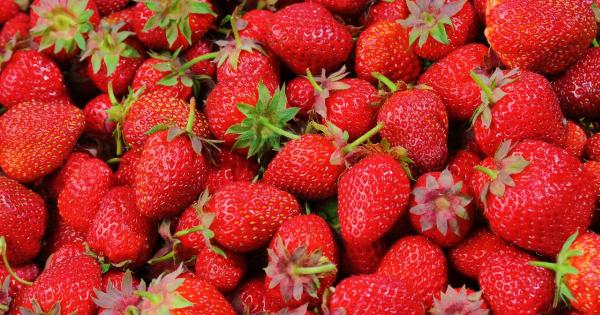Pregnancy is a crucial phase in a woman’s life, and maintaining a healthy diet is essential for the well-being of both the mother and the baby.
However, there are certain foods and drinks that pregnant women should avoid due to potential risks they can pose to their health or the development of the fetus. In this article, we will explore ten such foods and drinks that pregnant women should stay away from.
1. Unpasteurized Dairy Products
Unpasteurized dairy products, such as raw milk, soft cheeses like brie, feta, and blue cheese, may contain harmful bacteria like Listeria.
Listeriosis, caused by the consumption of contaminated dairy products, can lead to severe health complications for both the mother and the unborn child.
2. Raw or Undercooked Seafood
Raw or undercooked seafood, including fish, shellfish, and sushi, should be avoided during pregnancy to reduce the risk of exposure to harmful bacteria, parasites, or viruses.
These can potentially cause foodborne illnesses and lead to negative consequences for the baby.
3. Alcohol
Alcohol consumption during pregnancy can result in fetal alcohol spectrum disorders (FASDs), which can cause lifelong physical and cognitive disabilities.
It is recommended to completely abstain from alcohol throughout the entire pregnancy, as even small amounts can pose significant risks.
4. Caffeine
While moderate caffeine intake is generally considered safe during pregnancy, excessive consumption should be avoided. High levels of caffeine have been associated with an increased risk of miscarriage and premature birth.
It is advisable to limit caffeine intake to around 200 mg per day, which is equivalent to one cup of coffee.
5. High-Mercury Fish
Certain types of fish, such as shark, swordfish, king mackerel, and tilefish, are known to contain high levels of mercury. Mercury can be harmful to the developing nervous system of the fetus.
Pregnant women should choose low-mercury alternatives like salmon, shrimp, and catfish.
6. Raw or Undercooked Eggs
Raw or undercooked eggs may harbor Salmonella bacteria, which can cause food poisoning.
It is crucial to ensure that eggs are fully cooked and avoid consuming dishes like homemade Caesar dressing, homemade mayonnaise, or raw cookie dough during pregnancy.
7. Deli Meats and Unpasteurized Processed Meats
Deli meats and unpasteurized processed meats have an increased risk of containing Listeria bacteria. These meats should be avoided unless heated to steaming hot before consumption to kill any potential bacteria.
It is safer to choose cooked alternatives like roasted turkey or chicken.
8. Artificial Sweeteners
Artificial sweeteners like saccharin, aspartame, and sucralose should be consumed with caution during pregnancy.
While studies on the effects of these sweeteners on pregnancy are inconclusive, it is recommended to limit their intake and opt for natural sweeteners like honey or maple syrup instead.
9. Unwashed Fruits and Vegetables
Raw fruits and vegetables may be contaminated with various harmful bacteria and parasites present in the soil or during handling.
It is important to thoroughly wash all produce before consumption to minimize the risk of exposure to these potential contaminants.
10. Excessively Sugary or Junk Food
Consuming excessive amounts of sugary or junk food during pregnancy can lead to unnecessary weight gain and an increased risk of gestational diabetes.
It is crucial to maintain a balanced diet consisting of nutritious foods to support optimal maternal and fetal health.





















